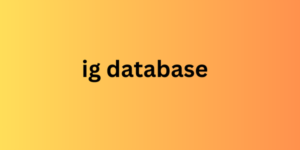Cookies are used for various purposes and have many applications in the world of the Internet. Here are some of their most important uses:
Remembering settings: They allow websites to remember user preferences, such as language, location, and preferred options, making the experience more convenient.
Session management : They can store information about a user's session, allowing websites to remember that a user is logged in and has added a product to their shopping cart on an online store.
Customize content: Allows a site to tailor content to your preferences, which may include personalizing content, product recommendations, and site appearance.
Performance measurement: They allow us to measure the performance of a website, including loading speed, number of visits and other statistics that help to optimise the site.
Security: Can be used to secure websites, such as those that check whether a user is logged in and has permission to access certain content.
Website traffic analysis: They allow you to collect data about user activity on your website. This data is used to analyze traffic, track conversions, and evaluate the effectiveness of marketing campaigns.
Targeted advertising: Used by advertisers to track user behavior and display personalized ads. This allows ads to be more targeted and effective.
What data do cookies collect?
Cookies can collect various types of data, depending on the specific purpose for which they are used and the configuration of a given website. Here are some examples of the types of data that can be collected by cookies:
Session data: Cookies often contain data relating to a user's session, such as a unique session identifier, which allows us to maintain the continuity of a user's visit to a website.
Login information: If you have logged in to an account on a particular website, cookies may include login information such as your username or email address to facilitate access to your account.
User Preferences: Cookies may store user preferences such as language selection, appearance settings, notification preferences, and other customizations.
Shopping cart data: In the case of online stores, cookies may store information about products added to a shopping cart, allowing you to continue shopping within a single session.
Visiting History: Cookies may store a history of the web ig database pages you visit, which helps websites track what content was of interest to you.
Information about website traffic: Cookies may collect information about user activity on the website, such as the number of visits, time spent on the website, clicks on links, or scrolling through the website.

Technical data: Your browser and device may transfer technical information to cookies, such as browser type, operating system, screen resolution or device type.
Geolocation data: If the user consents, cookies may contain geolocation data that determines the geographical location of the device.
Advertising data: May be used by advertisers to collect information about your shopping preferences and product browsing in order to deliver personalized advertising.
Advertising identifiers: Some cookies contain unique identifiers that allow advertisers to track user behavior for advertising purposes.
Types of cookies
Cookies can be divided into different types based on their function and durability. Here are some of their types:
Session Cookies: These are temporarily stored cookies that exist only for the duration of a browsing session. At the end of a session, when the user closes the browser, they are deleted from the computer. They are often used to store session information, such as login information.
Persistent Cookies: These are stored on your computer for a specified period of time, regardless of the end of your browsing session or when you close your browser. They can store various pieces of information, such as your preferences, the history of your page visits, or the contents of your shopping cart.
First-Party Cookies: These are created by the website that the user is visiting and store information specific to that particular website. They are used to store user selections and session data.
Third-Party Cookies: These are created by websites other than the one you are currently visiting. They are often used by advertisers and advertising networks to track users for advertising purposes and to analyze website traffic.
Secure Cookies: Secure cookies are only used on HTTPS connections, meaning they are transmitted securely. They are often used to store sensitive data such as login details.
HttpOnly Cookies: Are restricted to access via JavaScript, meaning they cannot be read or modified by JavaScript. They are used to enhance security, especially for session data.
SameSite Cookies: SameSite cookies allow you to control the extent to which cookies can be used by other websites - for example, by limiting access to them.
Third-Party Storage: While not traditional cookies, some websites use local browser storage to track users.
Considering their use, we should provide our website users with a cookie settings panel where they can configure them at any time.
It is worth noting here that such a configuration panel should be implemented on every website - in accordance with the GDPR personal data protection regulations designed by the European Union.
Are cookies safe?
Cookies themselves are relatively safe, as they are small text files stored on your computer. However, the security of cookies depends on how they are used and the type of data they store. However, you should be careful not to send your confidential data to untrusted websites.
